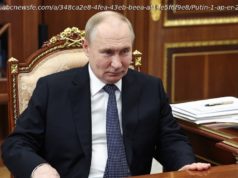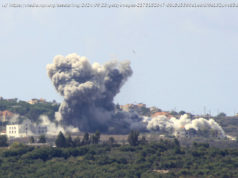Ties between the US and Russia have not displayed any sign of improvement since 2017 when the US President Donald Trump assumed office
WASHINGTON, U. S. – Ties between the U. S. and Russia have not displayed any sign of improvement since 2017 when the U. S. President Donald Trump assumed office.
Trump, who had showered praise on the Russian President Vladimir Putin ever since he began his presidential campaign – assumed office at a time when America’s relationship with the country had sunk to new lows.
Russia annexed Crimea, destabilizing eastern Ukraine.
The Putin-led country then thwarted U. S. hopes to oust the Syrian President Bashar al-Assad.
U. S. Intelligence officials have also alleged that hackers commanded or orchestrated by Russian intelligence agencies led a campaign of cyber attacks targeting the U. S. Presidential elections of 2016 in a bid to swing the vote in Trump’s favor.
Despite Trump repeatedly expressing his admiration for the “strong leader” Putin and facing criticism from domestic opponents for it – as the new U. S. President, he inherited all the issues that had caused ties between the two countries to sour in recent years.
Yet, post his election victory, Trump vowed to normalize relations between the two countries and emphasized the importance of creating a foundation of bilateral ties through trade.
Since then, ties between the U. S. and Russia have suffered further – even though domestic allegations of Russia collusion and international derision and taunts of being “Putin’s Puppet” over his repeated failure to confront the Russian leader over tough global issues have not curbed Trump’s ambition of bettering ties.
However, those efforts have come close to collapsing several times since the U. S. has continued to slam sanctions against Russia over various issues – specifically its alleged meddling in the Presidential election of 2016.
Russia’s involvement is also said to have been alleged by the U. K., Europe and the U. S. – in the poisoning of a former Russian double agent, Sergei Skripal and his daughter Yulia – in Salisbury, with a Soviet-era nerve agent called Novichok.
While Trump first sought decisive evidence from the U. K. Prime Minister Theresa May to prove her claims that Russia and its President were involved in the attack – eventually the U. S. too witnessed bipartisan support to slam sanctions against Russia for the poisoning.
In April, to show solidarity with the U. K., which blamed Russia for the March 4 nerve agent attack on the former spy, and to display unity with Europe that acknowledged the British Prime Minister’s claims – the U. S. too took action against Russia.
Following the attack and the subsequent allegations made by May’s government – European countries expelled 100 Russian diplomats.
A week later, the U. S. administration announced that it was expelling 60 Russian diplomats, labelling them spies.
This was the strongest such action taken by the U. S. government against Russia since 1986, and became the most forceful action taken against Moscow by Trump since he came to office.
Announcing the decision, U. S. State Department spokeswoman Heather Nauert told reporters that it had been determined that Russia “has used chemical or biological weapons in violation of international law, or has used lethal chemical or biological weapons against its own nationals.”
Nauert added that the sanctions would cover sensitive national-security controlled goods.
Meanwhile, another senior State Department official citing the 1991 Chemical and Biological Weapons and Warfare Elimination Act.
The official said that there would be exemptions for space flight activities, government space cooperation, and areas covering commercial passenger aviation safety, which would be reviewed on a case by case basis.”
Adding, “It is possible that trade affected could potentially reach hundreds of millions of dollars. It’s up to Russia how dramatic the impact is.”
The senior official added that a second batch of “more draconian” sanctions would be imposed after 90 days unless Russia gives “reliable assurances” that it will no longer use chemical weapons and allow on-site inspections by the United Nations or other international observer groups.
The official said, “If those criteria are not met – it is up to Russia to make that decision – a second round of sanctions…will to be imposed. They are in general more draconian than the first round.”
Following the announcement by the Trump administration, a British government spokesman welcomed Washington’s decision.
The British government spokesman said, “The strong international response to the use of a chemical weapon on the streets of Salisbury sends an unequivocal message to Russia that its provocative, reckless behaviour will not go unchallenged.”






